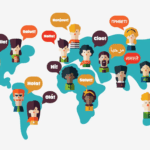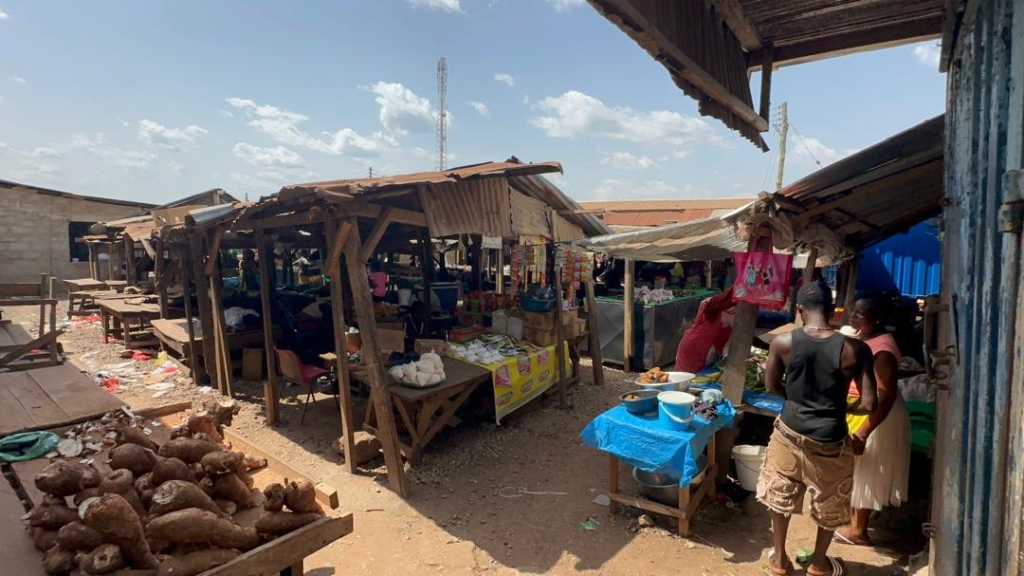
Accra, Ghana’s bustling capital, is often celebrated as the heartbeat of Africa’s democracy and a hub of commerce, culture, and diplomacy. Yet, beneath the city’s cosmopolitan vibrancy lies a quiet crisis- the steady extinction of the Ga language and culture, the evisceration of the heritage of the people who first settled and shaped what will become the nation’s capital.
The Ga people, a part of the Ga-Dangbe ethnic group, are believed by many historians to have migrated centuries ago from the ancient lands of Israel to present-day Ghana. They have long been known for their resilience, ingenuity, hospitality and distinct cultural practices. They established fishing communities along the coast and plains and introduced rich traditions such as the Homowo festival, and provided the cultural foundations upon which modern Accra stands. Today, however, the very language that binds this heritage together is slipping into oblivion.
In a city where Twi, Ewe, Hausa, and English dominate daily life, Ga is increasingly absent from classrooms, homes, and even marketplaces. The Ghana Education Service (GES) prescribes the teaching of Ghanaian languages in schools. To this end, in other towns and cities across the country, the indigenous language of the people is taught. However, in Accra, most privately-owned schools teach only Twi as the mandatory Ghanaian language. Young Ga-Dangme children today are more likely to speak English or another Ghanaian language than their native or mother tongue, much less children of non-indigenes.
Linguists warn that when a language disappears, it is not just words that vanish but entire worldviews, histories, and systems of knowledge. Rightly so, the tagline of the Linguistics Department of the University of Ghana is “No Language, No Society”. The extinction of Ga would mean the loss of a vital part of Ghana’s national identity.
The Role of Language in Development
Globally, multilingual societies thrive because language diversity fosters innovation, creativity, and inclusivity. Switzerland, with its 4 official languages, has built a national identity rooted in mutual respect and shared prosperity. South Africa, with 11 official languages, clearly demonstrates how diversity strengthens national unity when embraced.
In the same vein, a call for the preservation and promotion of all indigenous languages, including Ga, is neither bigotry nor tribalism but advocacy for inclusive development. Studies show that children who learn in their mother tongue perform better academically and develop stronger cultural confidence. For Accra, a city that reflects Ghana’s global image, it is only fitting that the language of its first settlers be recognized, taught, and promoted.
Globally, multilingual societies have been proven to thrive. Language is not just a means of communication; it is a tool for development. Multilingual citizens are more adaptable, innovative, and equipped to navigate global economies. Countries such as Switzerland and South Africa leverage their linguistic diversity to strengthen unity and cultural preservation. Ghana also stands to benefit from fully embracing and protecting its diverse linguistic resources.
The Ga situation speaks directly to the politics of recognition in Accra, the capital, the seat of government, diplomacy, and business. The very people who gave the city its name and traditions now struggle for visibility. Without a deliberate national policy and cultural interventions, the country risks erasing the contributions of an indigenous community whose contributions predate the colonial and post-colonial transformation of Ghana’s capital, and that will be such a shame!
This is an urgent call for inclusivity. Government, educational institutions, media, and cultural institutions must champion the teaching of Ga in schools, promote its use in public spaces, and preserve Ga oral traditions, songs, and festivals. Imagine an Accra where every child, whether Ga or not, learned to speak, read and write the language of the city’s first settlers, a city where culture becomes a unifying force rather than a relic of the past.
The future of Ga is a test of Ghana’s commitment to cultural inclusivity. If Accra, a city of global significance, cannot protect the heritage of its own indigenous people, what message does that send about our national pride? Equally, by safeguarding the Ga language and culture, Ghana would demonstrate to the world that true development is not only about infrastructure and GDP, but also about preserving the soul of its people.
******
Randa Naa Dei Ashie, is an APR (Development and Communications Consultant) and can be contacted via email at randa.d.ashie@yahoo.com

